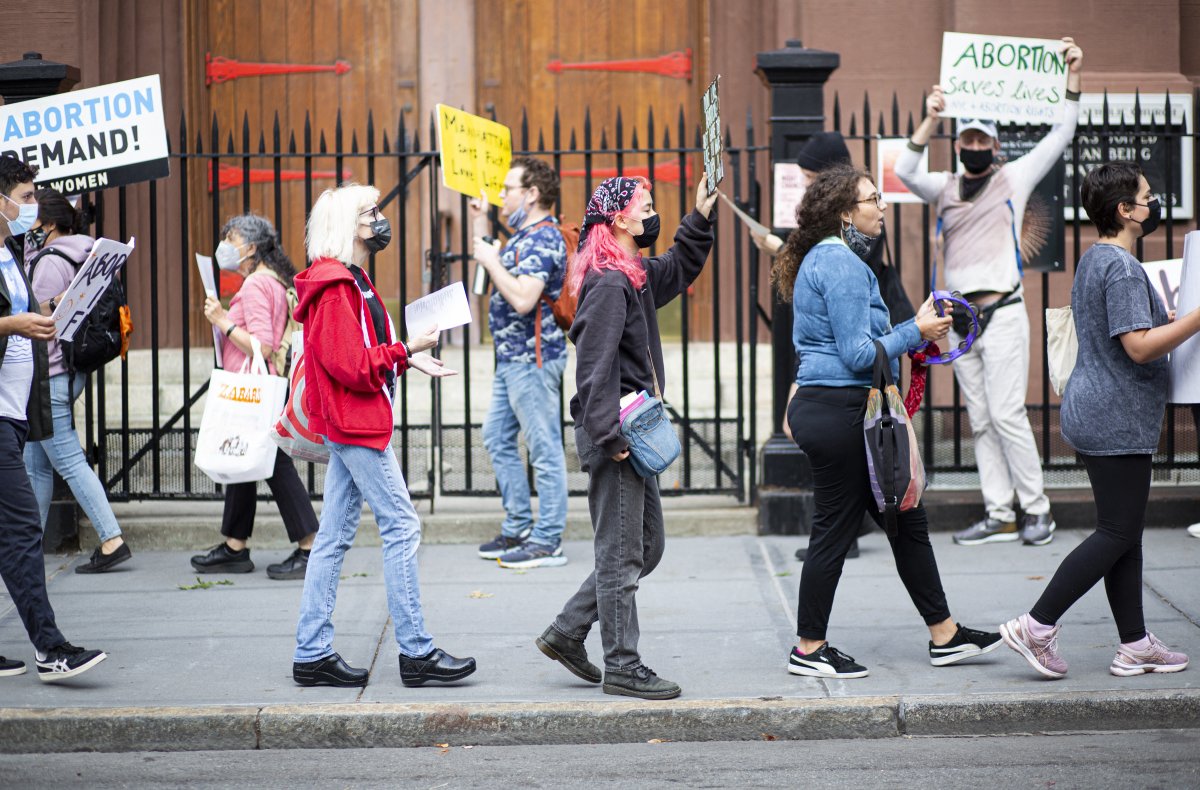Here in Texas, the Heartbeat Act is causing quite the stir. The pro-life community embraces it as progress toward protecting unborn lives, abortion rights advocates view it as an outrageous affront to Roe v. Wade and analysts on both sides wonder how it will fare in the courts.
The legal tug-of-war is already underway. Days after the measure went into effect, a federal judge blocked its enforcement. Then an appeals court reinstated it. Then the Biden Justice Department asked that court for a stay, to prevent the law's implementation. On Thursday, that motion was denied.
This back-and-forth prefaces the ultimate main event: the Supreme Court finally revisiting Roe, the 1973 decision that invented a constitutional right to terminate a pregnancy. The pro-life movement has spent the intervening years making a moral argument and a legal argument. The moral plea is for mothers to choose life; the legal assertion is that the Warren Burger Court concocted a right that simply does not exist.
Even though both sides sense a Roe challenge on the horizon, the shorter-term pro-life strategy question is whether the Texas law is a blueprint other states should follow.
The innovative structure of the Heartbeat Act seems to resist the usual method of court challenge, in which petitioners argue that the state is acting in an unconstitutional fashion. While the law says "a physician may not knowingly perform or induce an abortion on a pregnant woman if the physician detects a fetal heartbeat for the unborn child," it is not the state that stands in the gap. Instead, private citizens are empowered to civilly sue for damages anyone who performs an abortion or facilitates the procedure.
Opponents have called this a "bounty system" that will encourage citizens—The New York Times calls them "vigilante plaintiffs"—to launch punitive lawsuits of varying merit. Defenders say the courts can be trusted to weigh the facts in any case brought under the new law.
The Texas method is certainly a creative experiment in protecting life in the womb. But is it the most effective arrow into the heart of Roe v. Wade? An abortion case from Mississippi is already on the Supreme Court docket for oral arguments December 1. Dobbs v. Jackson Women's Health Organization addresses a 2018 law that bans most abortions after 15 weeks, and does it the old-fashioned way: the state draws the line and enforces it.

The Mississippi law was blocked by the Fifth U.S. Circuit Court of Appeals, which ruled that it violates another abortion decision, Planned Parenthood v. Casey, which gave states latitude to restrict abortion prior to viability as long as they did not create an undue burden on a woman's access to abortion.
"Undue burden" has been semantic quicksand for decades. What type of abortion restrictions pass muster under Casey, and which are inappropriately burdensome? If Roe is overturned, would Casey automatically swirl down the drain with it?
The Supreme Court could rule narrowly, and surgically support the Mississippi law without obliterating Roe. But all across pro-life America, anticipation builds for a day when abortion laws are left to the states, as the Bill of Rights requires.
My Texas pro-life allies do not view the approaches of other states competitively. John Seago, legislative director for Texas Right to Life, calls the Mississippi case a "promising opportunity for the pro-life movement to have the biggest Supreme Court win since 1973.... We are optimistic."
It is a point of constitutional fact (and a retort to a pro-choice scare tactic) that the eradication of Roe would not automatically establish any new abortion restrictions anywhere. With the fiction of a federalized abortion right removed, states would be free to craft whatever abortion measures they wished, likely resulting in added restrictions in conservative states alongside the familiar permissiveness of liberal states.
But 12 states, including Texas, have passed what are called "trigger laws," which would outlaw abortion the moment Roe goes down. The Texas argument is that our legislature meets only in odd-numbered years; pro-life legislators do not want to wait a year or more or cobble together a special session to do what their voters have sought for nearly half a century.
So which is the better strategy? The Texas approach of crafting a measure that is resistant to court challenges in the short term, or the Mississippi example, which boldly provides an opportunity—now just weeks away—for justices to finally weigh Roe v. Wade? Both are designed to save lives, and both are doing so as we speak. If the Court does not use Dobbs as an opportunity to strike down Roe, perhaps a Texas case will be working its way through the system soon after. If Roe is still left standing, other states are sure to yield other challenges that take direct aim at it.
The current court seems to contain enough originalist logic that one of those paths should lead to a ruling that overturns Roe v. Wade, not as a political favor to pro-lifers, but as a return to constitutional clarity.
Mark Davis is a talk show host for the Salem Media Group on 660AM The Answer in Dallas-Ft. Worth, and a columnist for the Dallas Morning News and Townhall.
The views expressed in this article are the writer's own.
Uncommon Knowledge
Newsweek is committed to challenging conventional wisdom and finding connections in the search for common ground.
Newsweek is committed to challenging conventional wisdom and finding connections in the search for common ground.
About the writer
To read how Newsweek uses AI as a newsroom tool, Click here.








